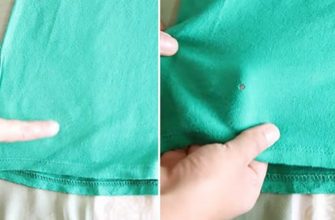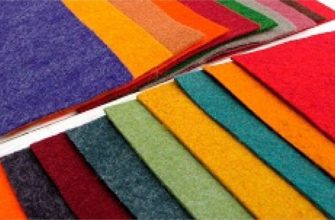Every woman wants a beautiful, elegant and, most importantly, original bag. The generally accepted material from which these products are made is leather or its substitutes - leatherette. Both a leather bag and a bag made of a substitute can cost a lot of money in a store and will be unaffordable for some people. That is why many people try to make suki at home with their own hands.
It is important to say right away that this is a very difficult task, since the bags have complex designs and require a sewing machine, as well as experience working with leather goods. On the other hand, the sewing process is a very exciting and fascinating activity for both masters and beginners. In this material, the question will be analyzed: how to sew a leather bag and general recommendations will be given on this matter, leather bag patterns will be published.
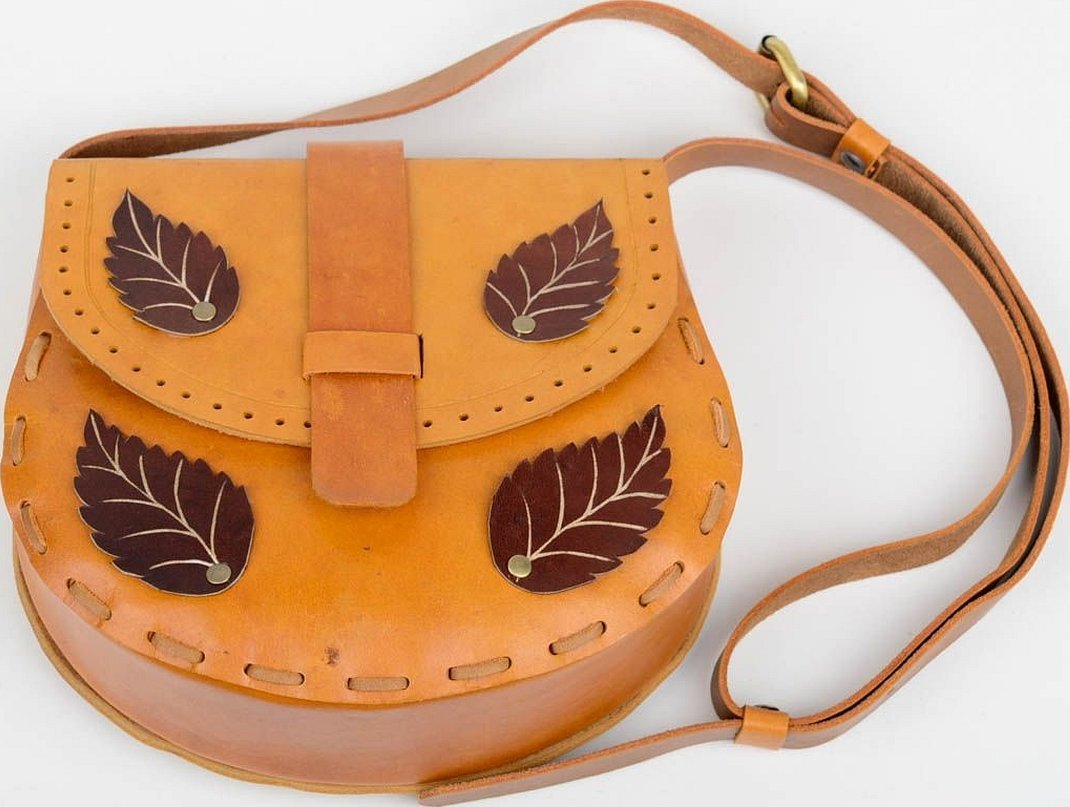
Selecting a model and pattern
Humanity has developed a huge number of models of bags. Based on its style, it will suit this or that woman, for this or that outfit or event. The most interesting options are the following:
- Over the shoulder. This type has been especially popular in the last few years. All because it is comfortable and practical. You can make such a thing from old jeans or new denim, leather or suede. Decorating such a bag with flowers or beads will also make it unique;
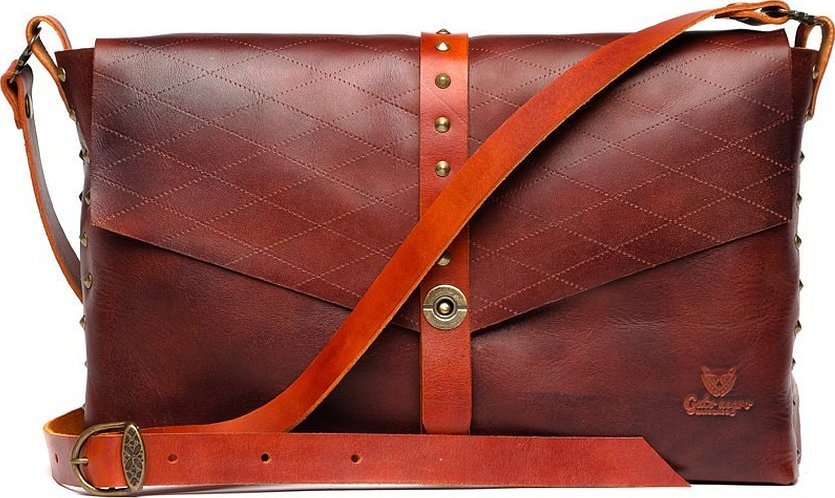
- Half moon, fruit or box shape. These include any shapes that pop into the author's head. They will be suitable for people who like something original;
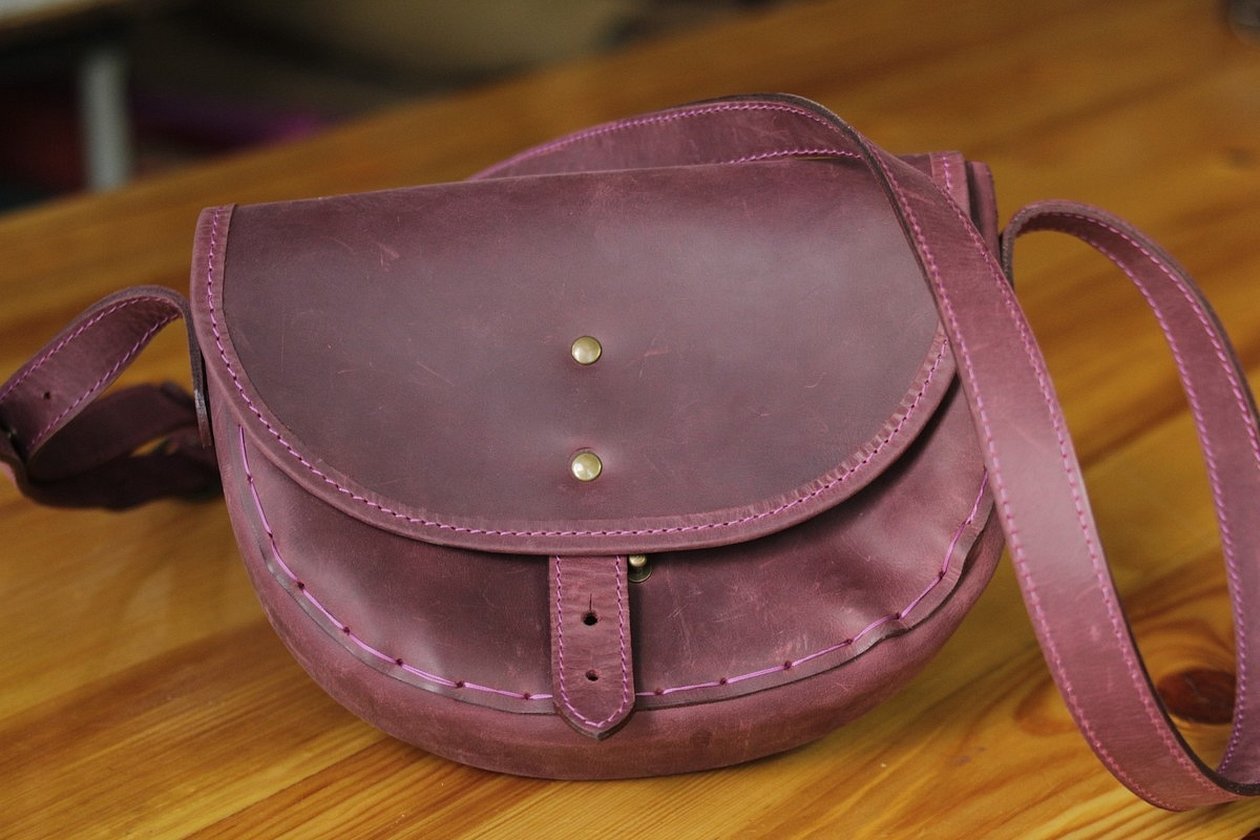
- Pouch. Made from numerous pieces of various materials, including leather;
- Tote. This is a kind of replacement for a bag or briefcase. It has been trending lately because it is practical to carry on the shoulders or in the hand with special handles;
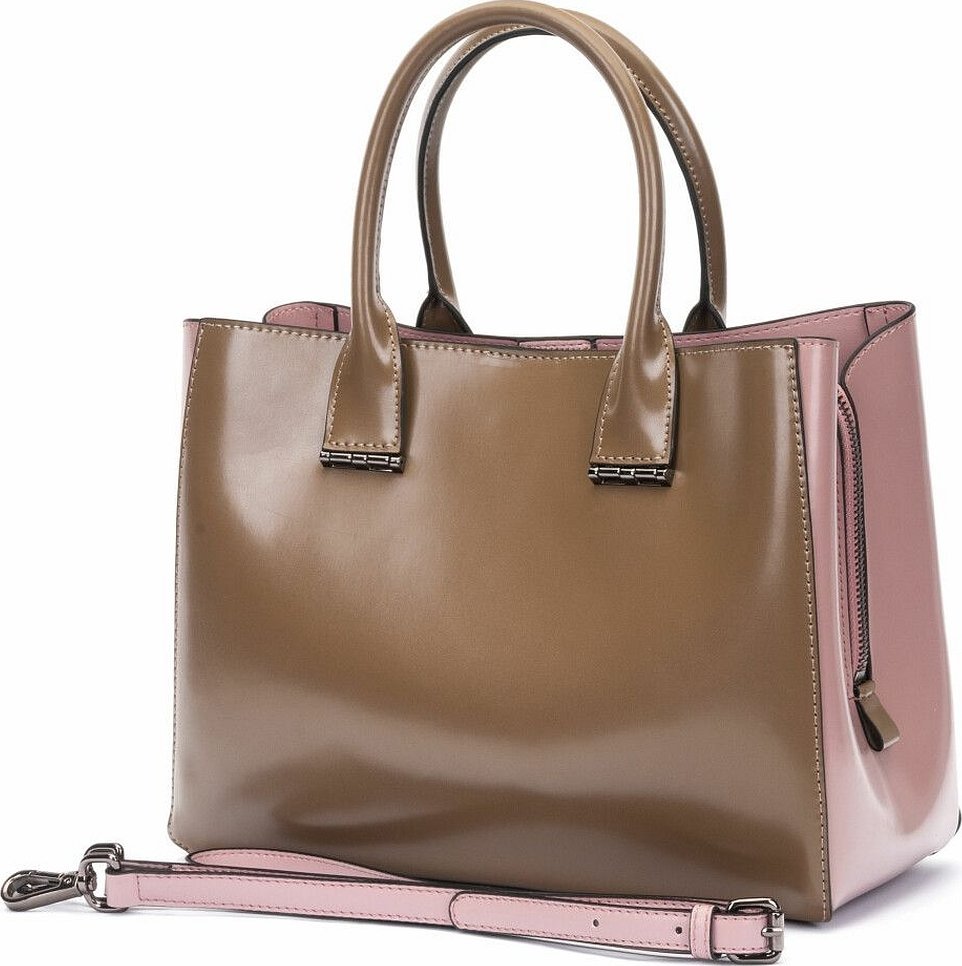
- Classic. It hasn't gone anywhere or disappeared. It can still decorate the image of any business woman;
- Casual style. Suitable for young and modern girls who feel relaxed freedom. Often it is made of suede with the addition of fringe;
- Clutch. Ideal for social events and night parties. Also included are envelopes and minaudières, which highlight an elegant evening outfit.
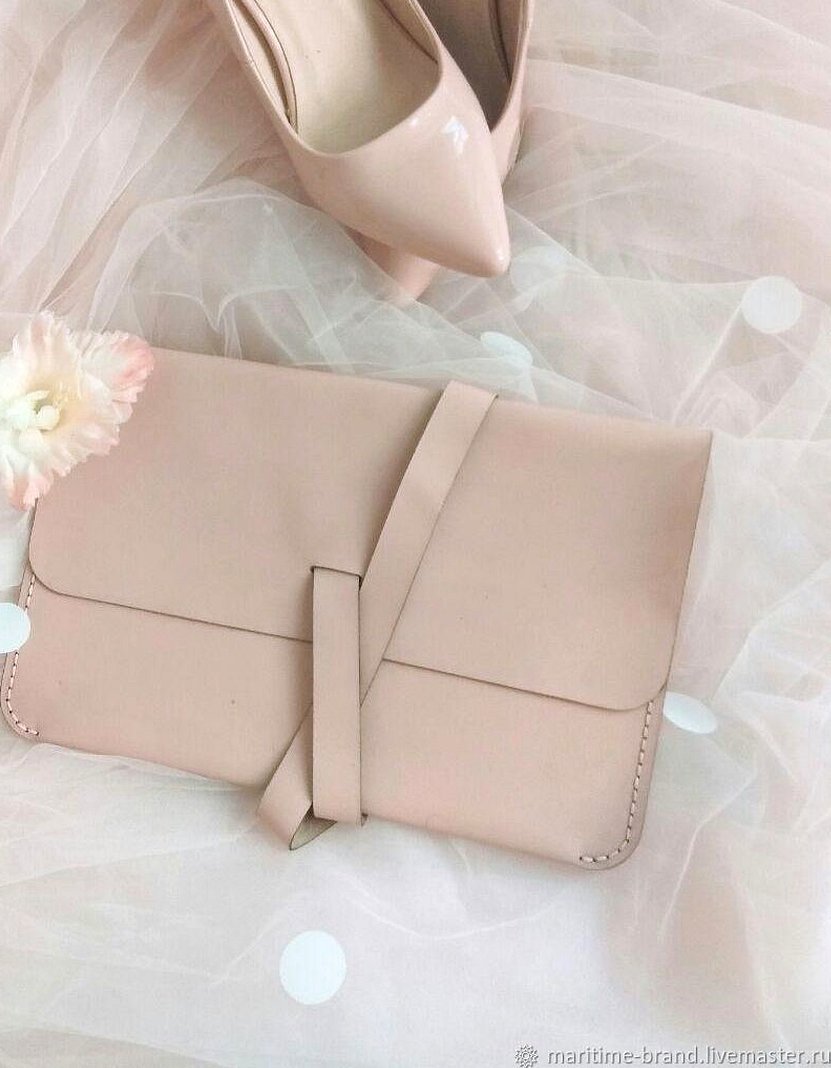
Important! Don't be afraid to experiment with styles when creating your own unique model. This will not only give the product originality, but will also develop creativity.
Accessories and applied materials
Making leather goods, like any work, has its pros and cons, nuances. You can't ignore them. Even the simplest model can turn out ugly if you don't follow certain rules, choose the wrong fabric and accessories. Before going to a store for leather or its substitute, you should learn about their types, among which you can list:
- Crust. This is a thick leather fabric with a smooth front side that preserves and replicates the texture of real animal skin. It is ideal for making small-sized cases and handbags;
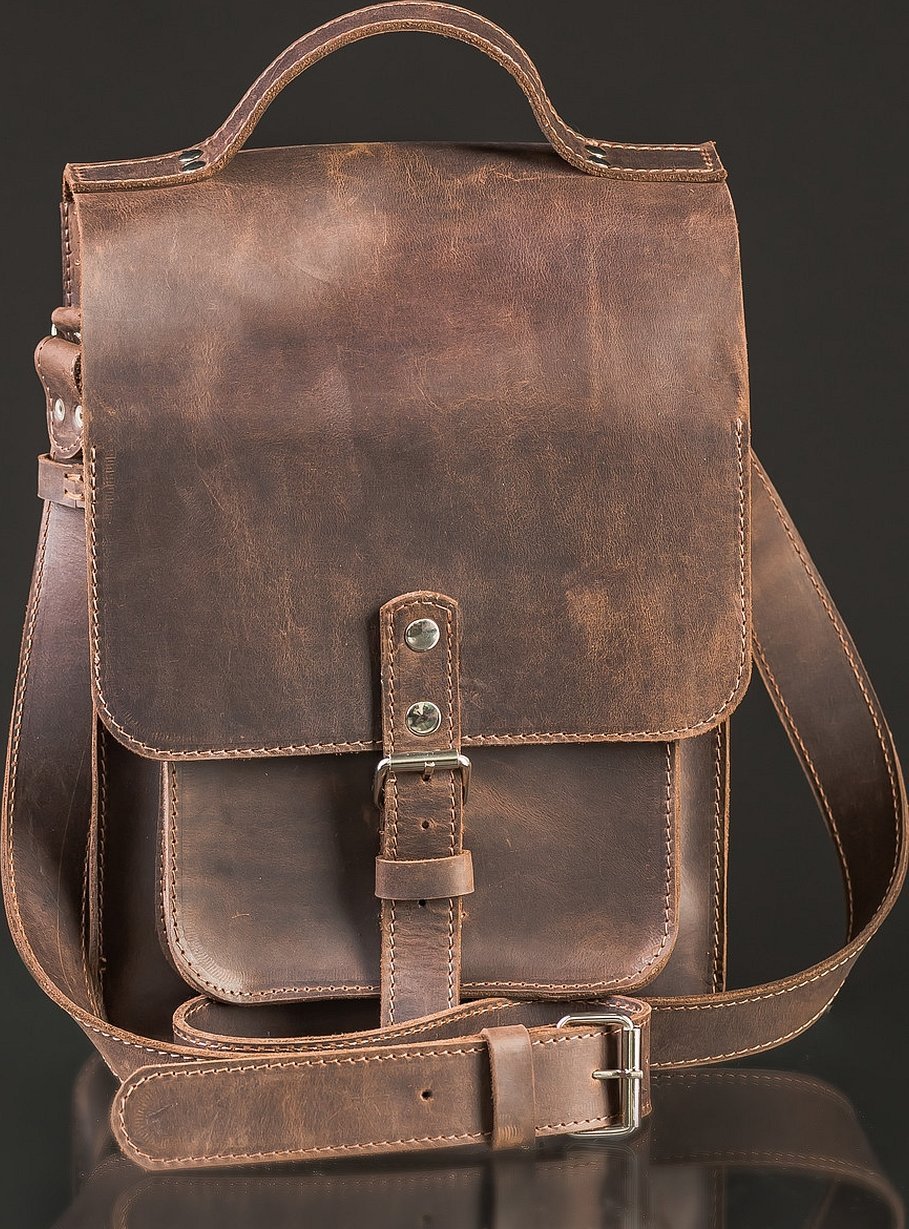
- Yuft. It is considered indispensable when creating any kind of products. It is distinguished by its increased softness and small thickness. It is very easy to work with such a fabric;
- Cheprak. It is a fairly dense leather obtained from the skin of cows and bulls. It is not very difficult to process the cheprak yourself and create the bag of your dreams at home. Such a product will hold its shape well and will remain dense during long-term use;
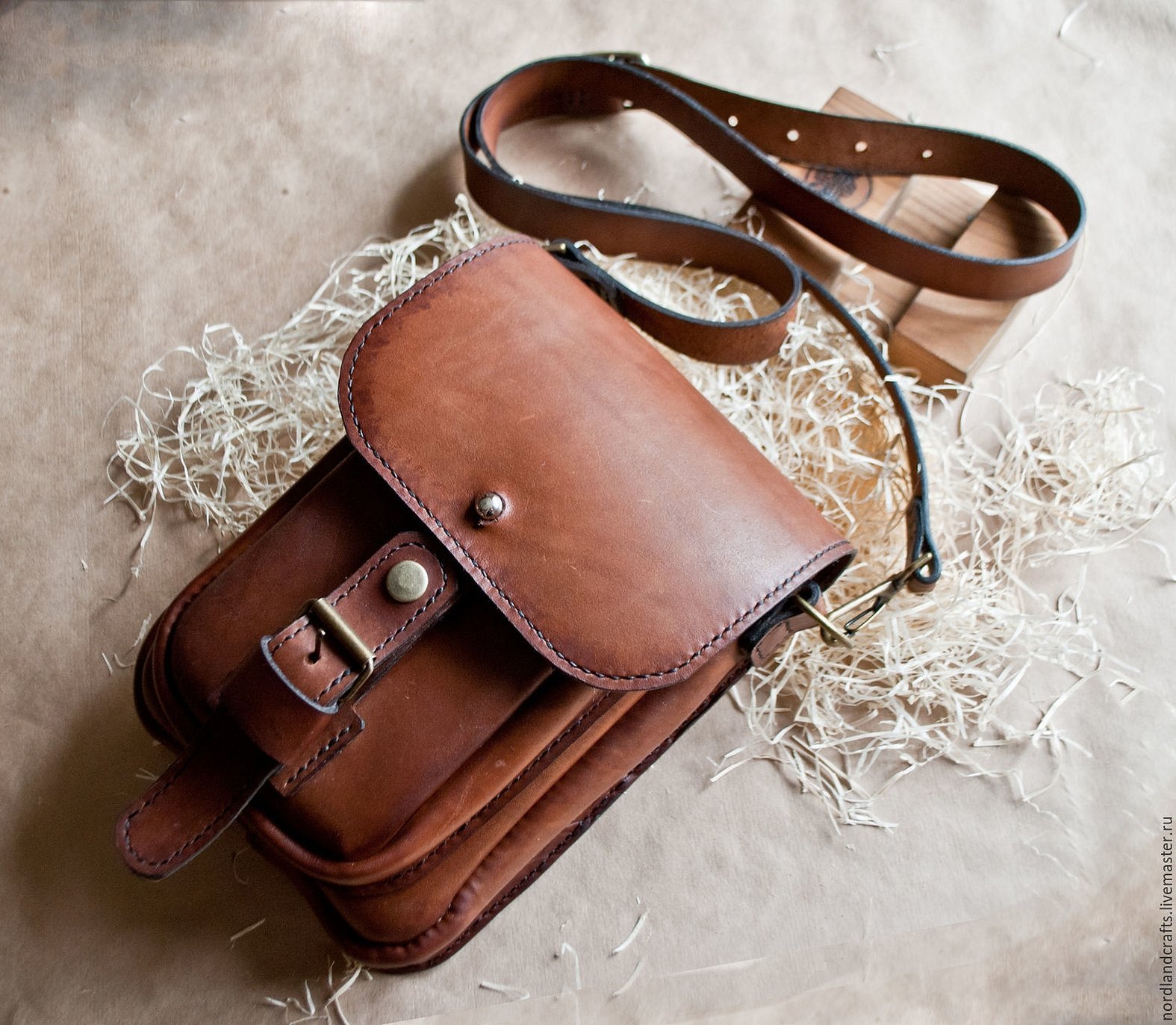
- Suede. This is a soft leather material with a small pile. Natural suede is made from elk or goat skins. Any model of products is also made from it;
- Leather substitute. One of the cheapest materials and looks like genuine leather. The most preferable option is eco-leather. This is an option for those who do not want to spend a lot and want to get "leather" of different colors.
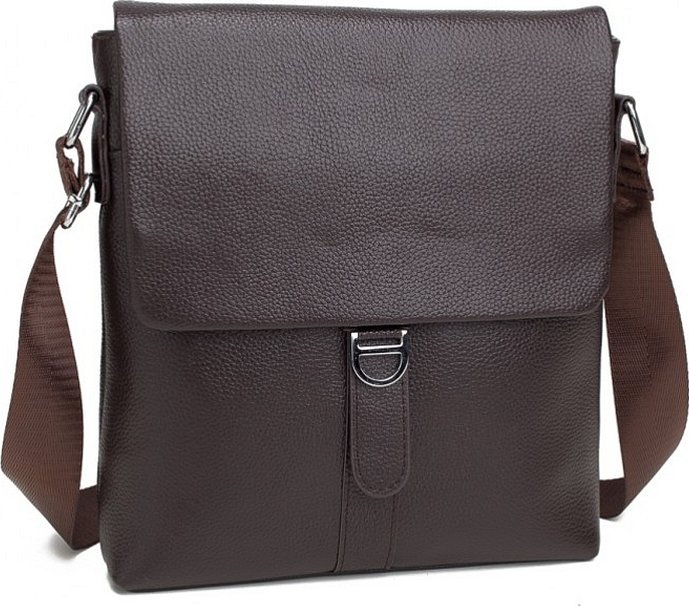
In addition to the material, you also need to think about decorations with fittings. Among them:
- Various fasteners. It is better to give preference to cast screw buckles from foreign manufacturers, since cheap tin fasteners quickly lose their original appearance;
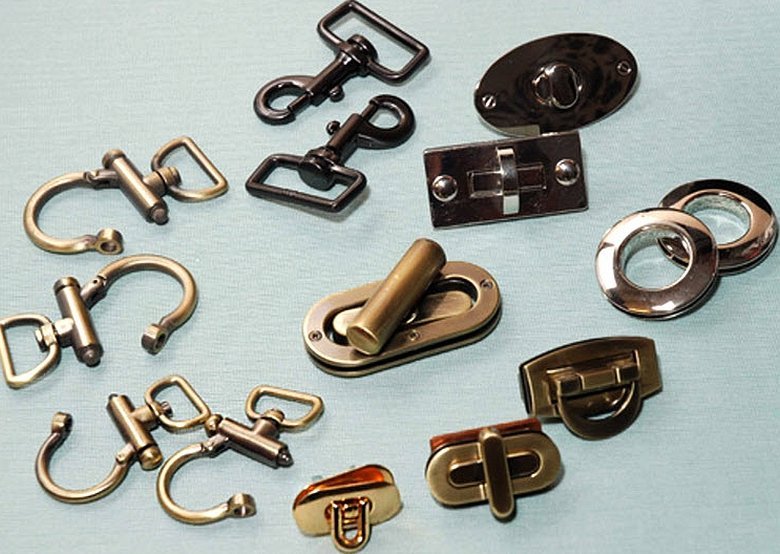
- Carabiners. They will come in handy if the product is planned to be equipped with removable handles;
- Zippers. In addition to all of the above, zippers will become indispensable fittings. You should carefully select suitable elements for external and internal pockets.
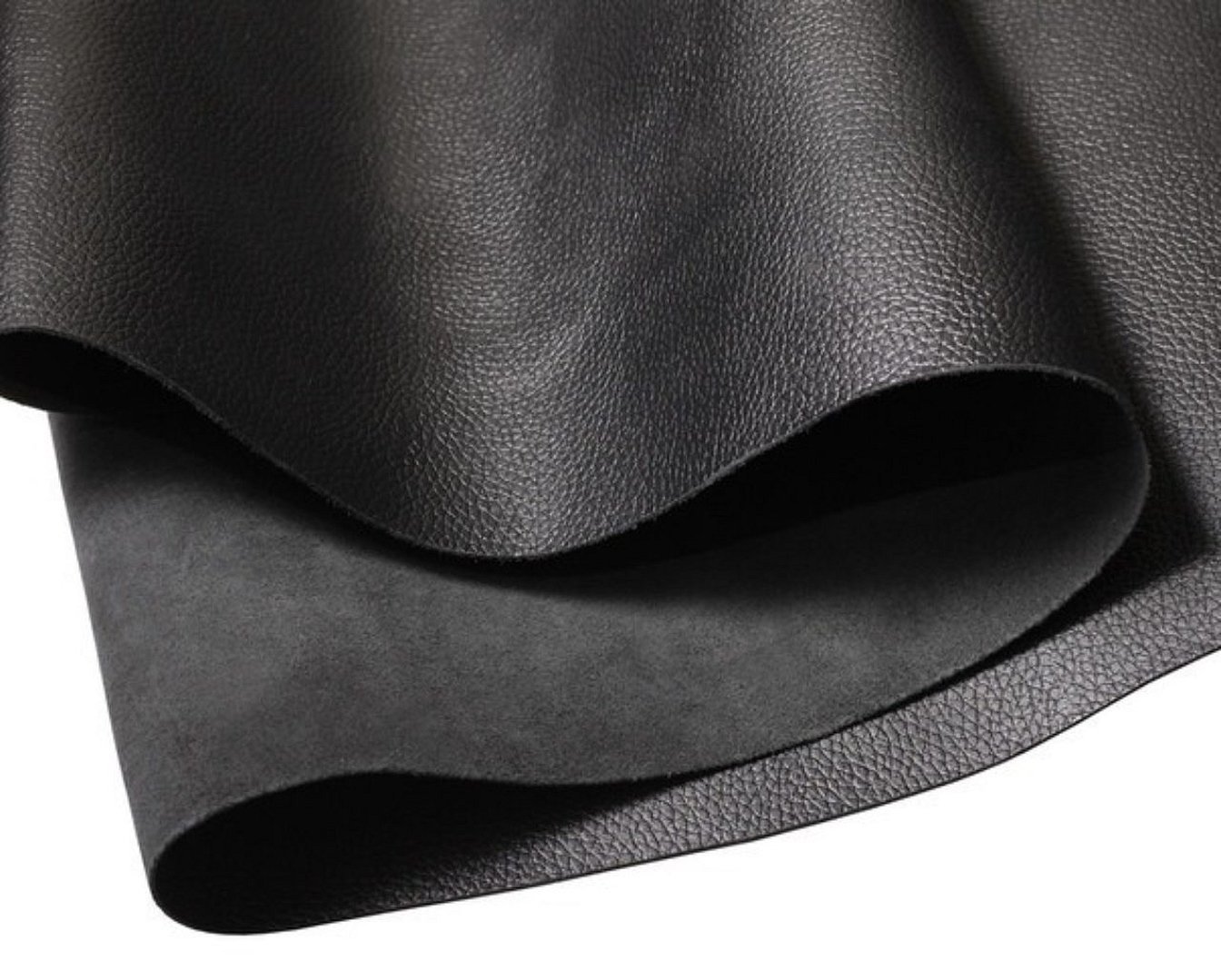
To ensure that the entire appearance of the bag is in harmony, you should choose accessories that are the same color and match the skin tone. It is recommended to purchase nickel-plated fittings.
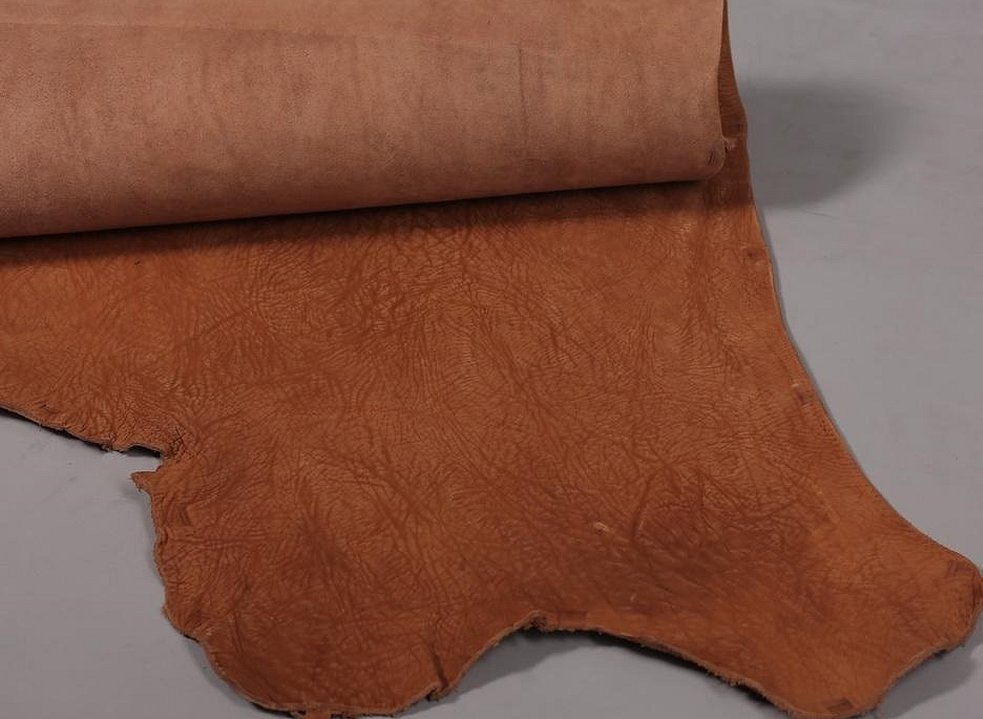
Tools for sewing leather bags
To sew a bag yourself, you should use the following tools:
- A sewing machine that allows you to sew pieces together exactly at a 90 degree angle;
- Special triangular needles for sewing machines. Single-sided needles do not work well with thick leather;
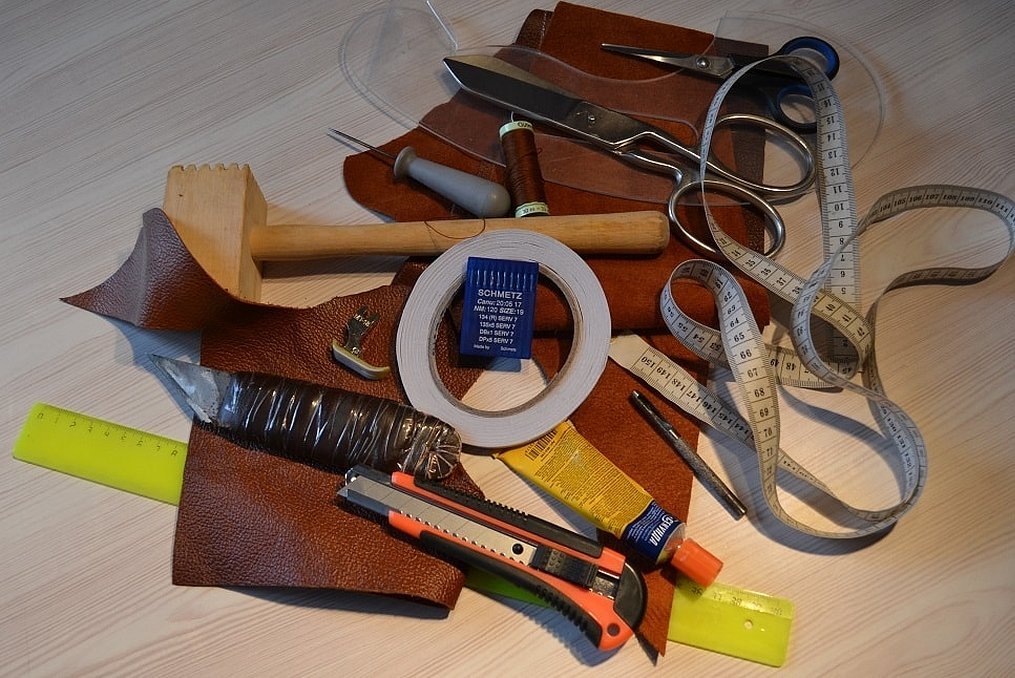
- Sharp tailor's scissors for delicate cutting of details with perfectly even edges;
- A centimeter to perform all necessary measurements;
- A hammer for tapping some parts on the edges;
- Threads that must be strong and elastic. They must also match the color of the leather. When hand stitching parts, nylon thread is used;
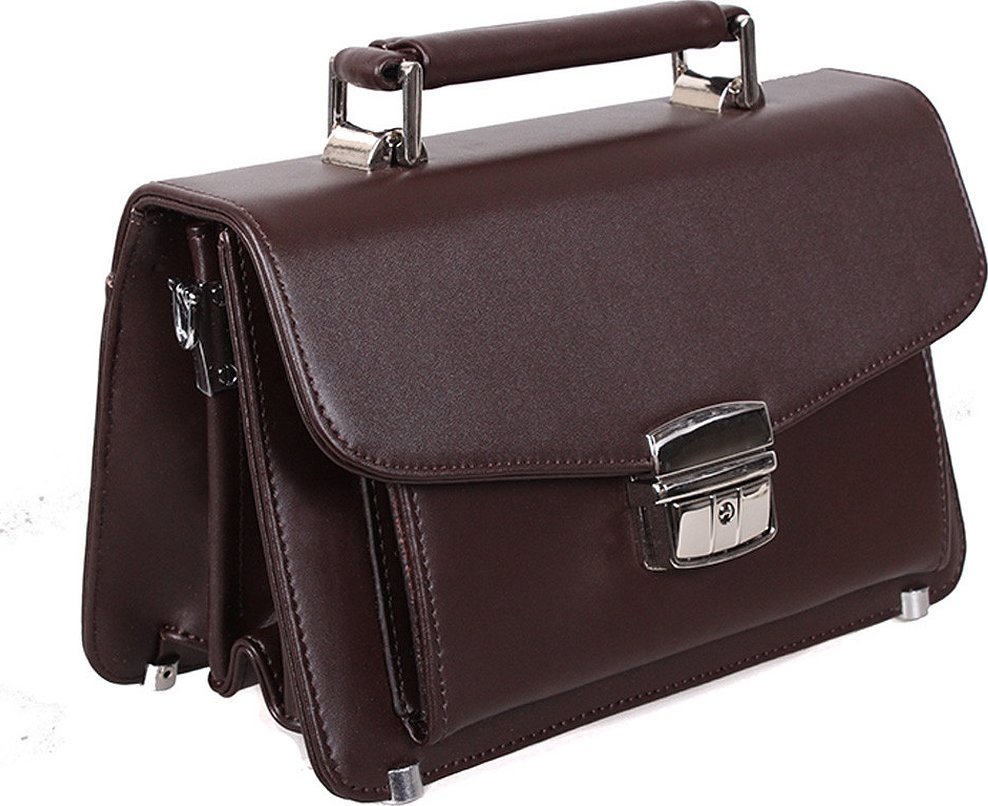
- A special glue for leather that will help with some tasks.
In addition to these tools, hole punches, a vice or compass, and other special tools for finishing and processing leather may be useful.
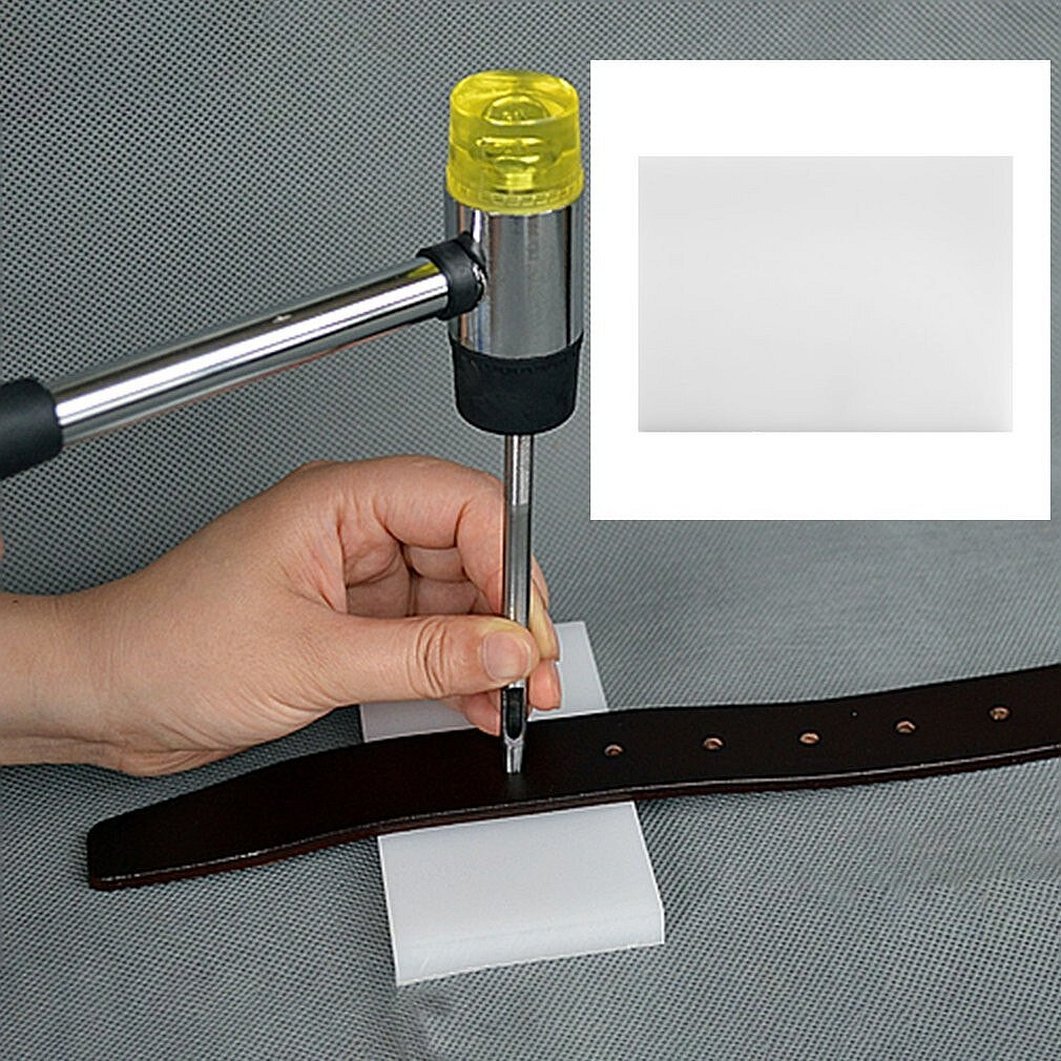
Leather or fabric consumption for a bag
If there are no problems with jeans or any other fabric and literally a meter of cut with a width of 150 cm is enough, then with leather things are a little different: here you need to control and measure every centimeter. When cutting, you need to lay out the parts in advance, since you may have to avoid some areas where the fabric is wrinkled or has some defects. On average, 1 square meter of leather is needed to sew a bag, but you can say for sure when the pattern is ready.
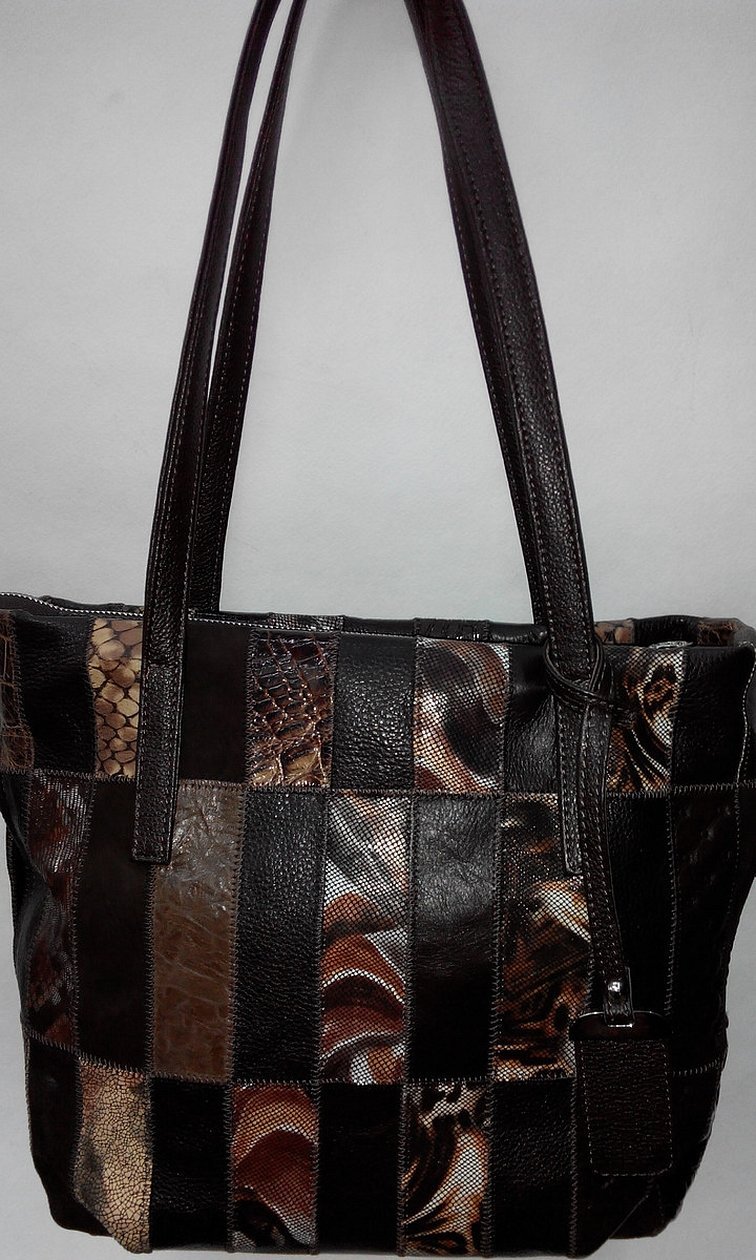
If you have little or no experience, you should first practice sewing a bag from old leather, which can be taken from a raincoat or jacket. As a last resort, the product can be sewn from another dense material. This will provide a certain basis for production using high-quality materials.
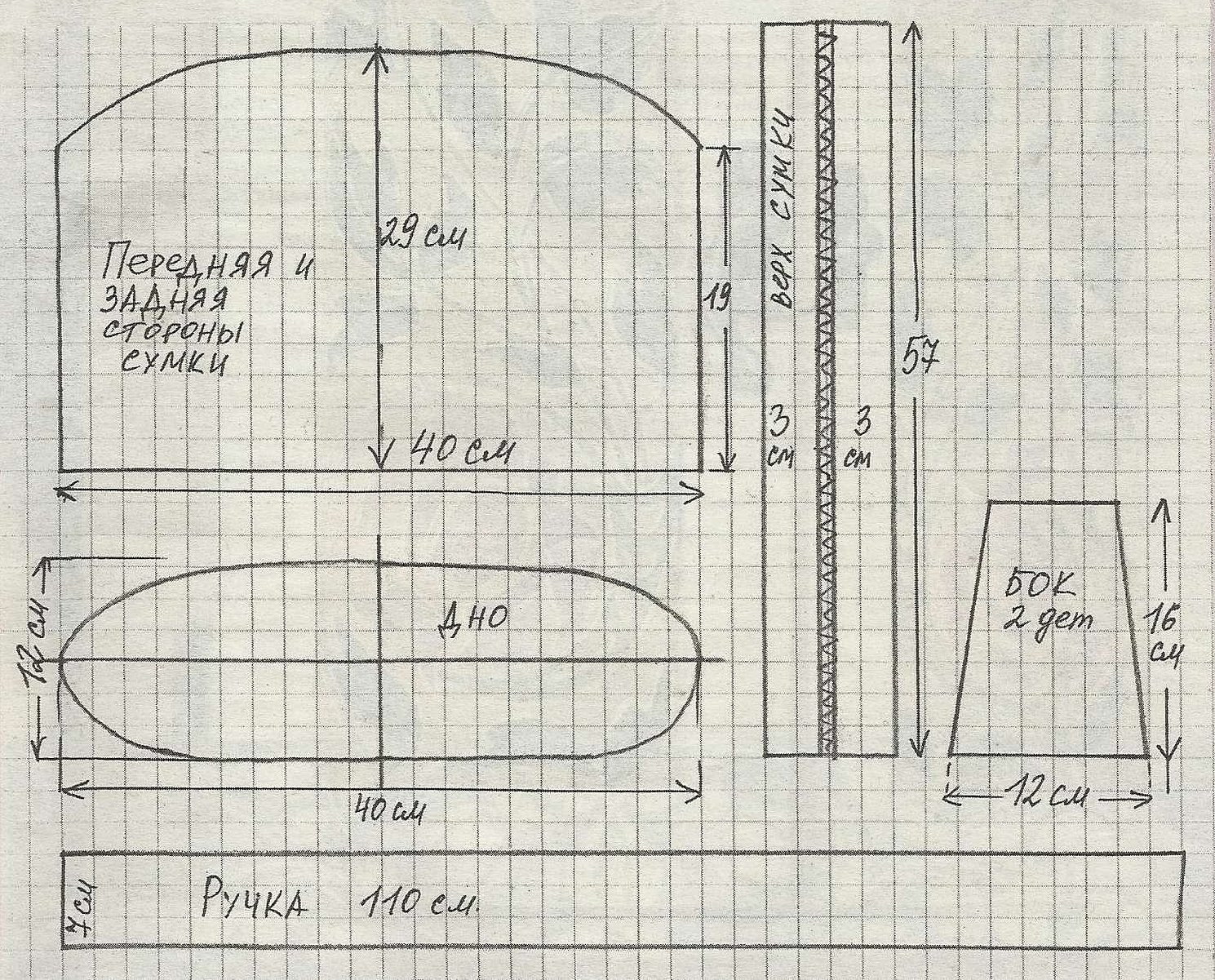
Tips for working with leather
If you can't make a pattern, you can use ready-made options. They can be found in fashion magazines, on the Internet, for example, on sites such as Burda, Moden, Sewing and cutting.
Very often, when working with leather, cardboard is used to give it shape, which is inserted between the main material and the lining. Also, as already mentioned, when cutting leather, you need to monitor every millimeter of this material. This is mostly not about saving money, but about the fact that a bag made sloppily will end up crooked or skewed.
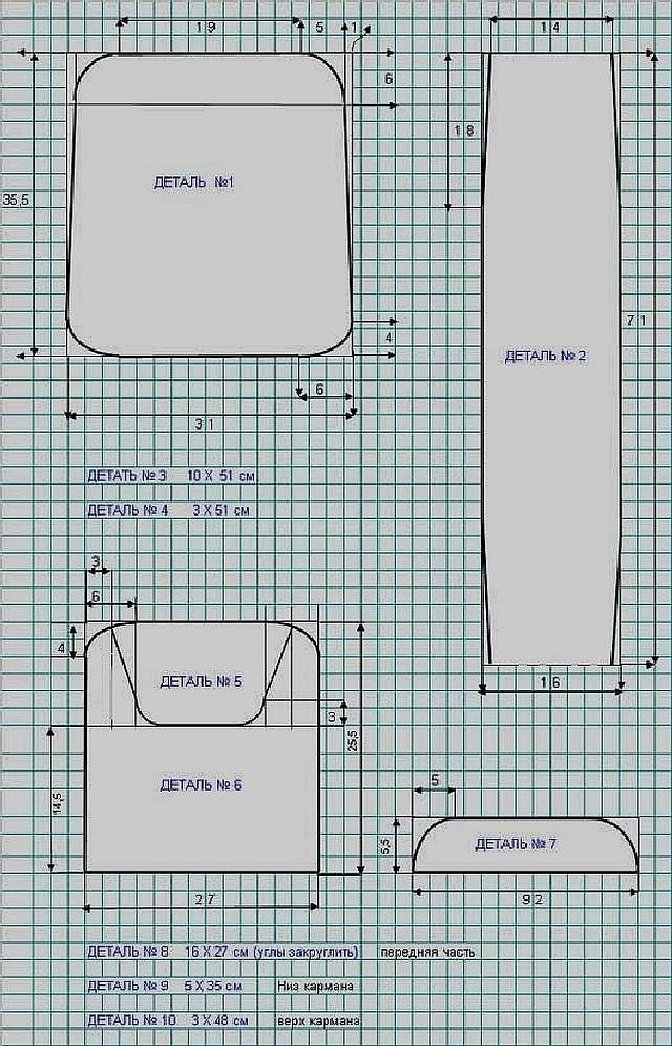
Instead of cardboard, you can use a special sealant. Its convenience lies in the fact that it has an adhesive side that securely attaches it to the fabric. The bottom is also not left without attention. It is advisable to put thick cardboard on it.
The inner seams of a leather bag should be glued properly. This will prevent fraying. Before stitching the zipper to the leather, it is advisable to glue it and tap it with a hammer. Using various devices for working with leather will greatly simplify the work. Among them, for example, a riveting machine. It is recommended to sew the lining by hand, since the machine version can leave creases on the leather.
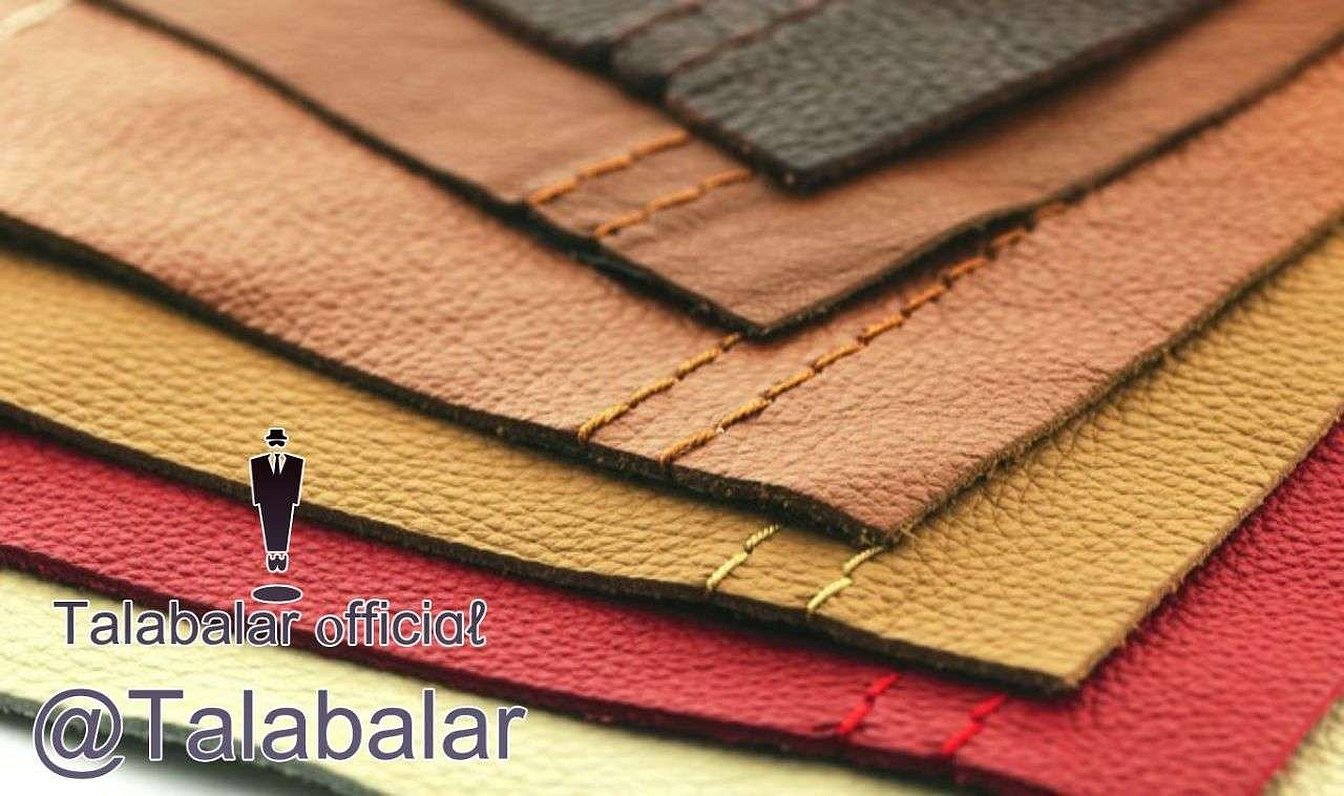
Sewing a bag yourself
Now it's time to start sewing. By this time, it was already necessary to understand what model you want to make and from what material, select fittings and all the appropriate tools. Further actions involve making straps for the handles, the handles themselves and sewing the final product.
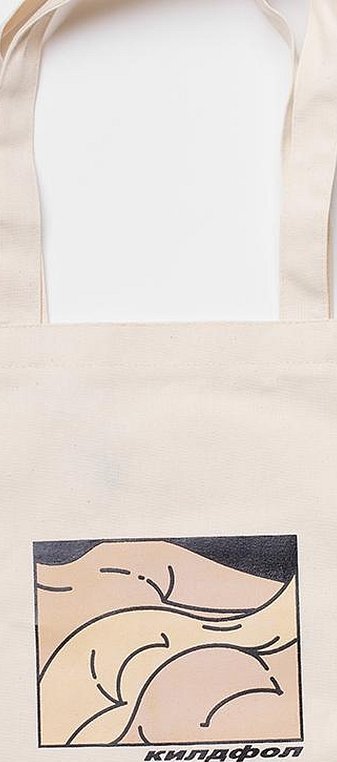
Step one: handle straps
The first thing you need to do is to make the straps for the handles. Before the main process, you can glue them and stitch them with a decorative stitch along the top. If you do everything manually, you will most likely have to pierce the material with an awl, because needles cannot take such fabric. The straps themselves are attached to the first element on both sides. Do not forget to insert a ring into the straps, since the handle will be attached to it.
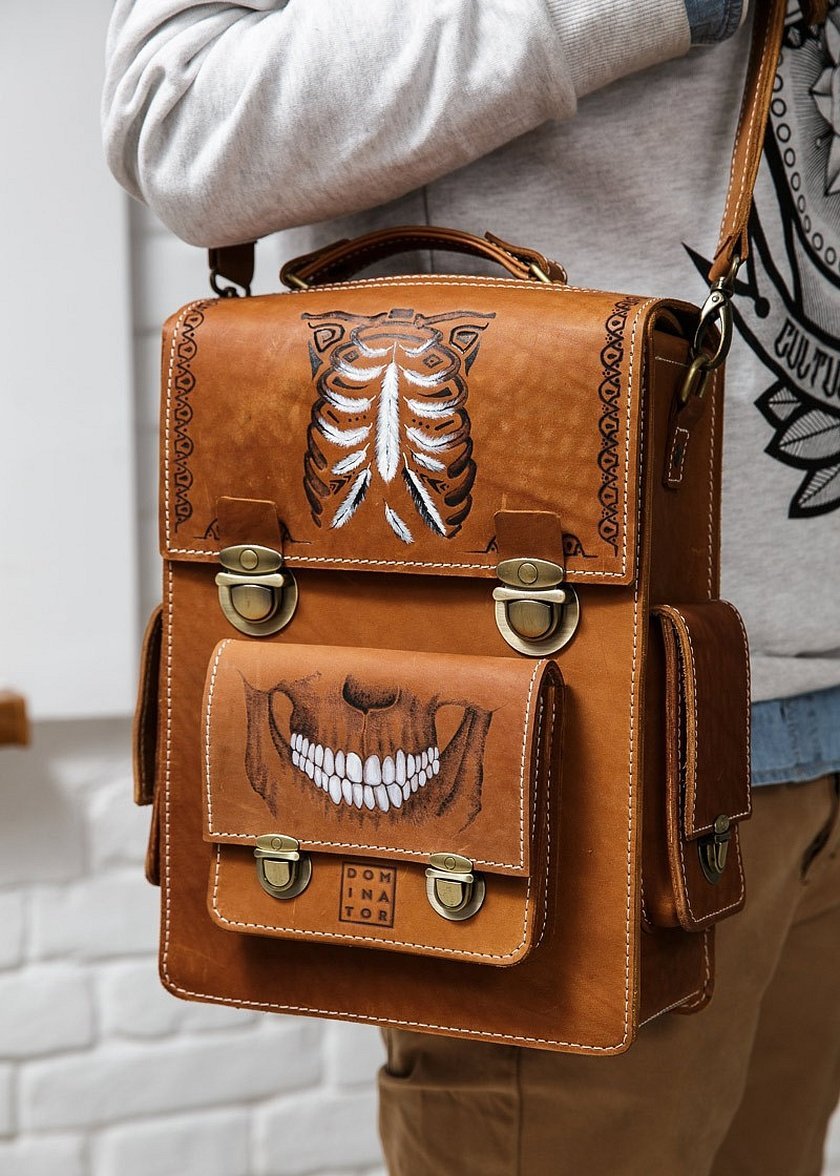
Step Two: Assembling the Product
The second stage involves connecting the main parts together. In places where you do not plan to sew in a zipper, you should bend the ends. After that, attach the zipper to the prepared place. Beforehand, you can glue it with glue. After that, you can tap with a hammer and sew the zipper with a machine.
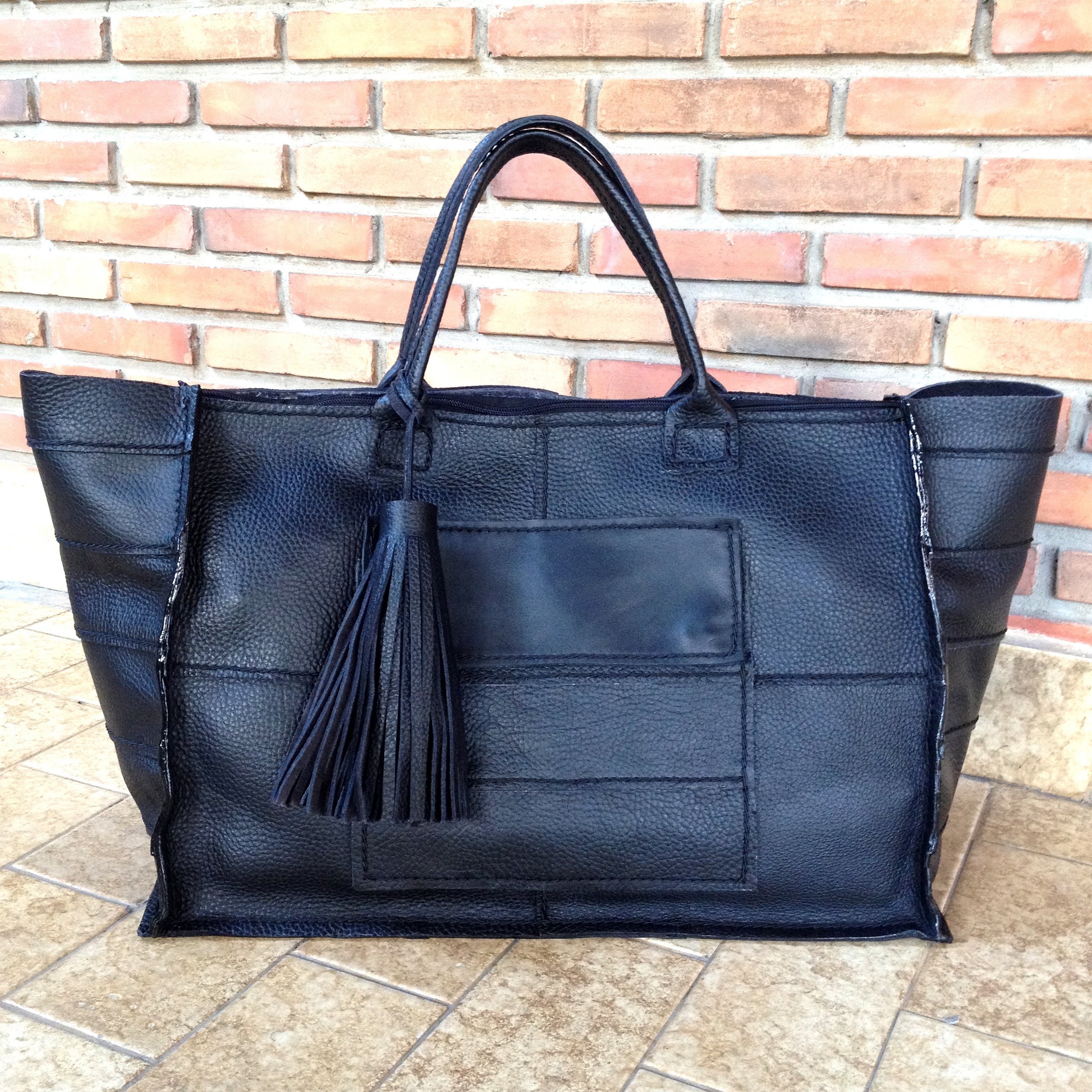
Important! Leather is a fairly rough material, so making a bag with your own hands "from" and "to" will require an awl. You need to work with it like this: pierce the product where you plan to thread the threads.
After sewing in the zipper, you need to sew the top and sides to the bottom of the product. It's easier than it seems. The process itself is done from the inside and requires using threads of the same shade as for the top of the bag.
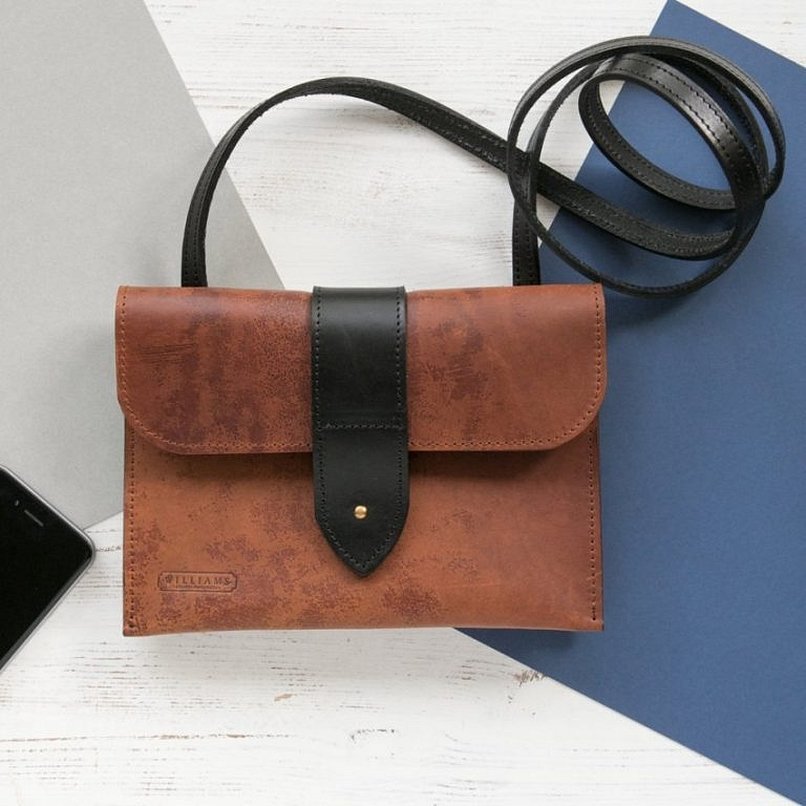
Step three: handles
The bag is almost ready. Now you need to attach the handles. The handles should be strong, since the entire product and everything in it rests on them. Therefore, they can and should be reinforced with leather. To make the handles seem more voluminous, you can insert strips or twisted pieces of leather that are left over from sewing. After filling, everything is stitched with an external fastening line, and then with a decorative one.
You can also sew a lining for a bag. It is made according to the example of the bag and glued inside so that the main material is higher than the lining.
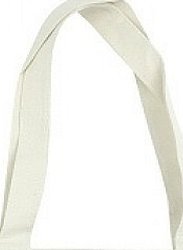
Decorations
Accessories are not the only decoration for a bag. If you have a creative mind and imagination, you can decorate the product with anything you want. For example, various kinds of appliques are often used. This can turn an ordinary strict bag into an original element of style.
Important! The applique can be absolutely anything, and sewing it on is not difficult: all you need is thread and a needle. Your imagination will do the rest.
You can also decorate it with a fringe tassel. You can make it from various threads or strings, or you can collect the remaining pieces of leather and cut strips of equal length from them. You can attach such a decoration to any place on the bag, but it is better to attach it to the top or to the zipper slider.
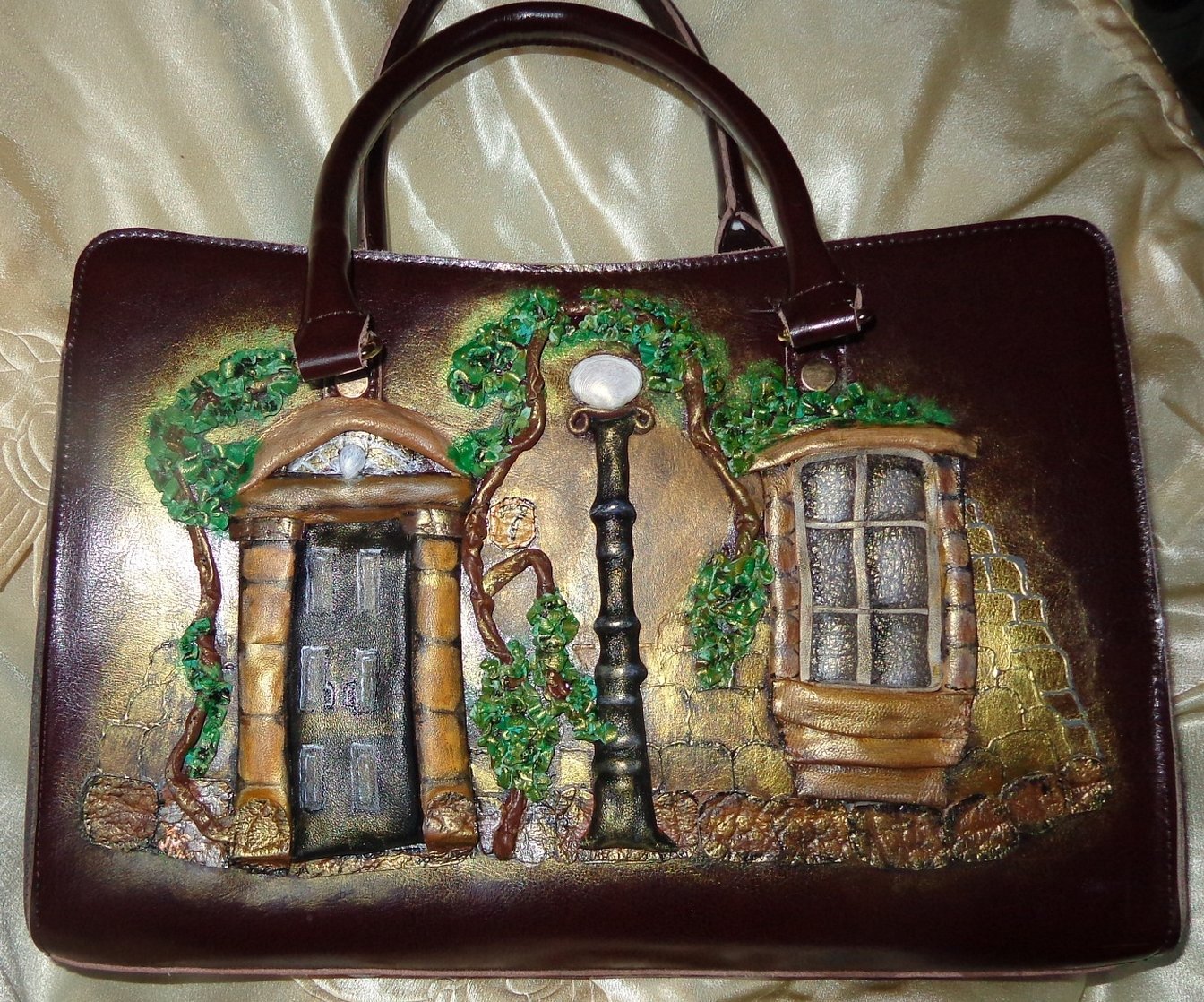
Another option is to decorate with stones and decoupage. The principle of the first is clear: take rhinestones or stones and glue them to the surface using special leather glue. The second may raise the question: what is it? Decoupage is a way of transferring drawings or photographs from a special paper base using decoupage glue to a bag.
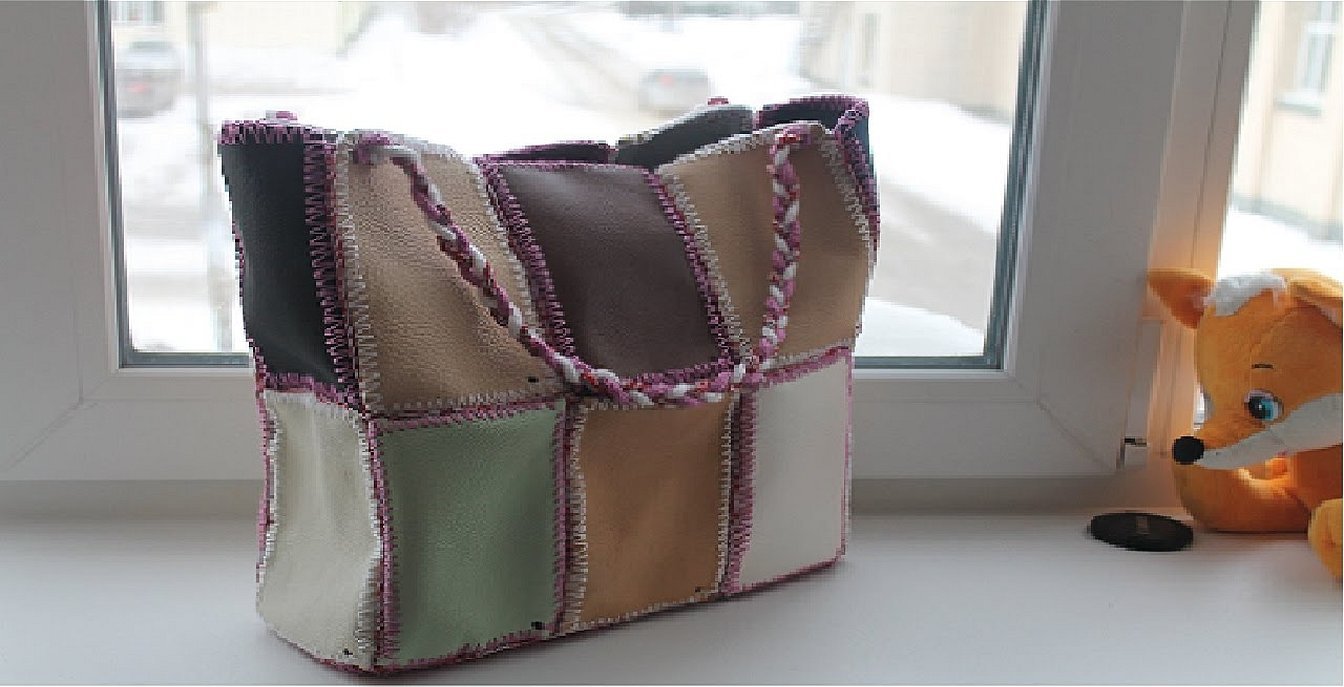
Thus, the question of how to sew a leather bag was analyzed and detailed master classes for sewing the product, sewing on handles, etc. were described. Detailed instructions were also given not only on sewing from leather and working with it, but also on choosing the right leather material and high-quality fittings. For most of these simple products, you don’t even need patterns, because everything is sewn at right angles in the form of rectangles. However, sewing handbags, especially leather ones, does not forgive mistakes.
Incorrect cutting will make the product slanted and it will never look as impressive as planned.



